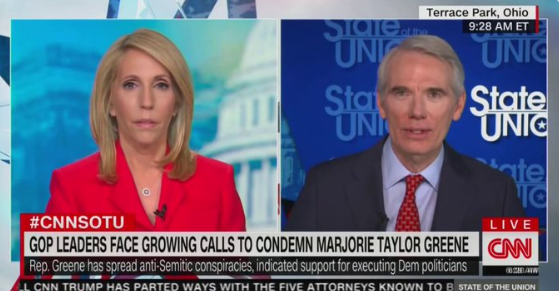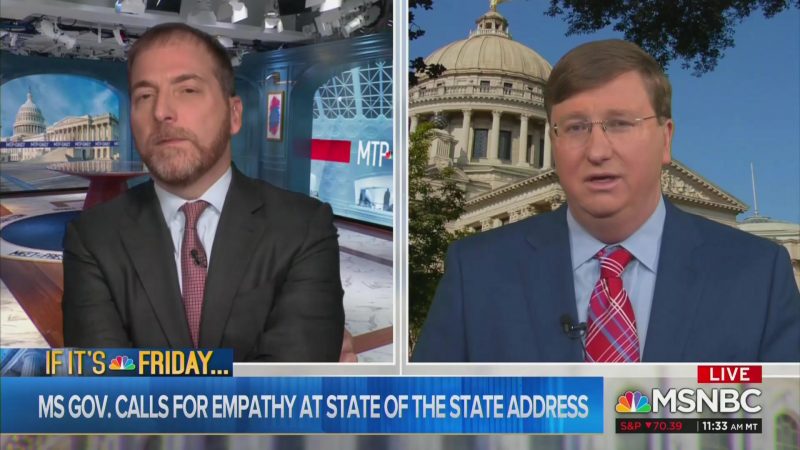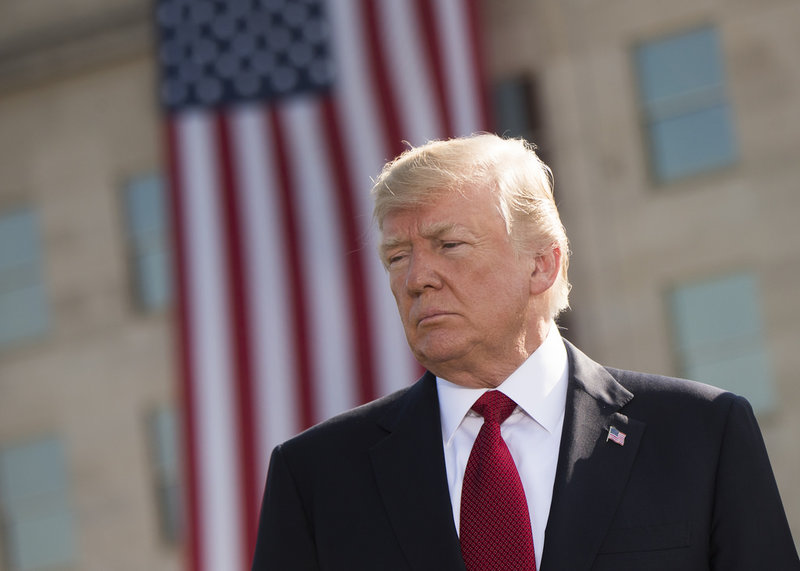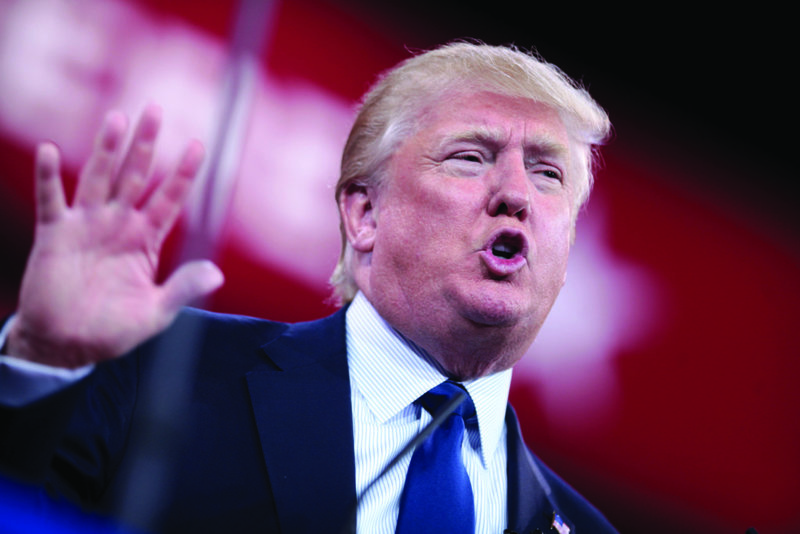Trump’s Promise To Rip Up Iran Deal Must Be Aggressively Interrogated In Next Debate
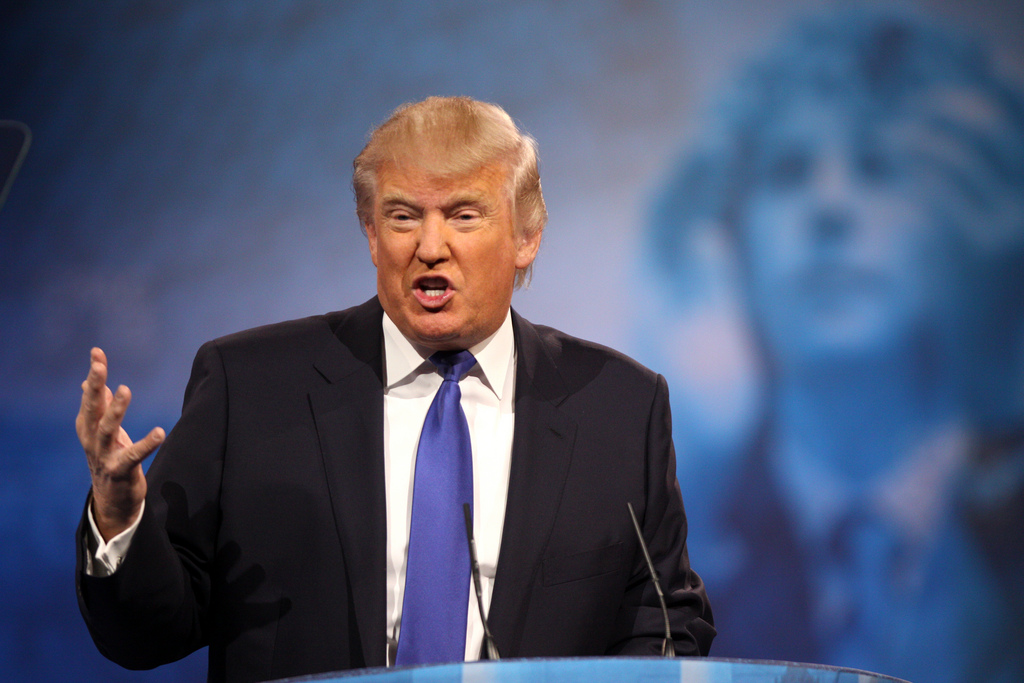
In the St. Louis presidential debate at Washington University, Trump should be asked to describe specifically why the Iran Deal is bad, and exactly what he would do differently to avoid a war after he makes good on his pledge to rip up the Iran Deal on day one of his potential presidency.
Trump will likely bluster about for a bit saying nothing with a lot of words until he comes to a stopping point, and then moderators Martha Raddatz and Anderson Cooper can press on for as long as it takes for Trump to arrive at a specific answer.
Trump deserves this. He has promised to renege on a milestone international treaty signed in all Americans’ name, which very likely would spiral US-Iranian relations into a series of shows of aggression culminating perhaps inevitably in war. The American people deserve to know what he would do differently to avoid that war (if he intends to avoid war at all), because otherwise a vote for Trump might as well be a vote for war against Iran.
Such a war against Iran will pit 77 million Iranians, who simply want to live in peace, against 317 million Americans, who simply want to live in peace. Our political leaders may have threatened various things throughout the past, but President Obama has stoically worked on ironing out some of the major creases throughout his second term in particular. Iran also has been receptive to de-escalated tensions, and so far the Iran Deal is working—especially considering the fact that Israel and Congressional Republicans have been insisting that Iran is dangerously close to having nuclear bombs since the early-90s.
Trump might respond to the persistent questioning with something vague about how he wouldn’t take any option off the table, or that we won’t know until we get there, but that is an unacceptable answer while interviewing for the most important job in the world.
The reality of American foreign policy regarding Iran in 2016 is that President Obama chose the path of diplomatic engagement, mutually signed treaty consensus, and enduring (so far) stability. Trump has claimed that the path Obama took is weak, terrible, and that it deserves to be reversed, though “Because Obama did it” is not a very reliable north star to use while reinventing America’s foreign policy.
In contrast, Hillary Clinton—as a key player of the Obama Administration’s diplomatic team—is not about to reverse course. As such, the American people should demand that the debate moderators force Trump to explain specifically what he will do differently than his political opposition, which he claims has helped “cripple” America.
The weirdest part of Trump’s strong-man schtick is that America’s military would obviously win in a matchup against Iran’s military. The reason that America’s biggest national security threat is in isolated terror attacks is that our sworn enemies are perfectly aware that they stand no chance against our military. The best they can hope for is precision terror attacks (which are very rarely precise). Literally, no one in the world doubts American military strength, so why do conservatives always feel the need to prove it to the rest of the world?
The answer is obvious for Trump, since he possesses the textbook dictator obsession with aggressive posturing. He is aware that domestic power can be maintained with eternal fear mongering against supposed enemies abroad—this also guides his domestic obsession with referencing to himself as the “law & order candidate” against alleged enemies inside the country.
So the moderators must determine once and for all whether Trump would really rip up the Iran Deal on day one of his presidency. And then what he would do when Iran naturally begins to enrich uranium for nuclear weapons again according to the principle of cause and effect. Would he bomb Iran? Would invade and occupy Iran? Would he impose regime change? What exactly is his commitment to military action in Iran?
Trump might try to cop out with his conveniently inconvenient explanation that he will not give away his plans to the enemy, but that is utter nonsense and must no longer be allowed to be peddled without journalistic pushback. First, Iran is not as of yet an enemy. Second, the morally righteous and rationally secure participant in a disagreement has no need for secrecy. If America is to do the right, honorable thing, why would the US hide and conceal it’s objectives and tactics even from its own citizens in whose name Trump is acting? Given that Trump has promised to break America’s promises, murder noncombatants indiscriminately, and bring back torture, Trump’s war against Iran undoubtedly would be anything other than morally righteous, rationally secure, or honorable.
To Trump voters, bombing and/or invading Iran might sound like a good, bold idea, but only if the US did not happen to have extensively analyzed, anecdotal evidence from the varying circumstances of attempted regime change in Afghanistan, Iraq, Syria, Egypt and Libya, among others. Sorry if this is a spoiler to conservative war hawkery, but Iran and global stability in general will not respond well to America’s foreign intervention, let alone another preemptive shock and awe bombing campaign.
Trump’s strong-man schtick against Iran would likely lead into the stupidest foreign policy blunder in history, surpassing even George W. Bush’s epic blunder of a decision to occupy Iraq. Iran is much bigger, and much stronger than Iraq was circa 2003. If it takes the entire debate to force Trump to explain how he might avoid an unnecessary war by impulsively shredding Obama’s landmark US-Iran negotiations, so be it. Hillary Clinton can simply enjoy the show from her podium as she floats toward the White House down the river of Trump’s wildly unpresidential word vomit.
Neither America nor the American people need another Middle Eastern war. The US definitely does not need to wreck another Middle Eastern country in Americans’ name.

